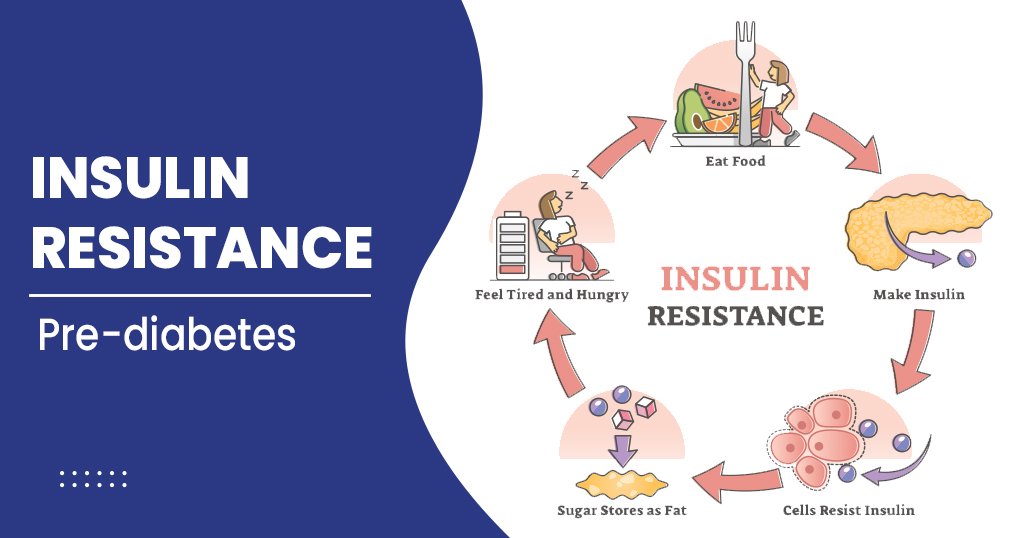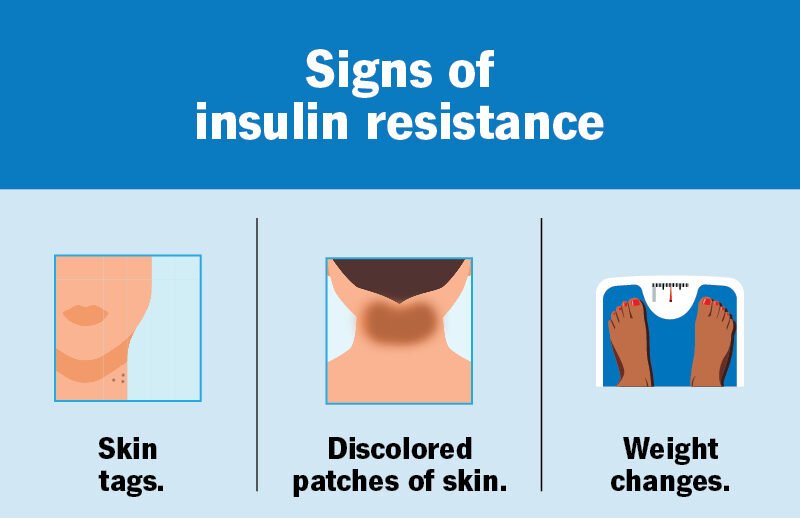
Insulin Resistance: What It Is and How to Fix It
If you’ve been struggling with stubborn weight gain, fatigue, or cravings that just won’t quit, insulin resistance might be the culprit. This condition affects millions of people, often without them even realizing it. But the good news? You can take steps to reverse it and regain control of your health.
What Is Insulin Resistance?
Insulin is a hormone produced by the pancreas that helps regulate blood sugar levels. When you eat, your body breaks down carbohydrates into glucose, which enters your bloodstream. Insulin helps shuttle that glucose into your cells, where it’s used for energy.
But when your body becomes resistant to insulin, your cells stop responding properly. This forces your pancreas to produce more and more insulin to keep blood sugar levels in check. Over time, this can lead to prediabetes, type 2 diabetes, and other metabolic issues.

Insulin resistance doesn’t always come with obvious warning signs, but there are some key indicators to watch for. If you experience multiple symptoms regularly, it may be time to evaluate your health:
Constant Sugar and Carb Cravings – If you often crave sweets or starchy foods and feel unsatisfied after meals, your body may be struggling with insulin resistance.
Fatigue, Especially After Eating – Feeling sluggish or exhausted after meals can indicate that your body isn’t efficiently using glucose for energy.
Difficulty Losing Weight – If you find it hard to shed extra pounds, especially around your midsection, insulin resistance may be playing a role.
Frequent Hunger – Feeling hungry shortly after eating, despite consuming enough calories, could be a sign that your cells aren’t getting the energy they need.
Brain Fog or Difficulty Concentrating – Insulin resistance can affect brain function, leading to trouble focusing or frequent forgetfulness.
High Blood Pressure or Cholesterol Levels – These conditions often accompany insulin resistance and signal metabolic imbalances.
Skin Changes – Dark patches of skin (acanthosis nigricans), especially on the neck, armpits, or groin, or the appearance of skin tags may indicate insulin resistance.
If you notice these symptoms persistently, consider consulting a healthcare professional for further evaluation.
What Causes Insulin Resistance?
Several factors contribute to insulin resistance, including:
Diet High in Processed Foods & Sugar – Excess sugar and refined carbs can overload your system and lead to insulin resistance.
Lack of Exercise – Movement helps your cells become more sensitive to insulin.
Chronic Stress – High cortisol levels can make insulin resistance worse.
Poor Sleep – Lack of sleep disrupts metabolism and hormone balance.
Excess Weight – Particularly belly fat, which releases inflammatory substances that worsen insulin resistance.
Genetics – Some people are more predisposed to insulin resistance than others.
How to Reverse Insulin Resistance Naturally
The good news? Insulin resistance isn’t a life sentence. Here are some science-backed ways to improve insulin sensitivity:
1. Cut Back on Sugar & Processed Carbs
Focus on whole, unprocessed foods like vegetables, lean proteins, healthy fats, and fiber-rich carbs (such as sweet potatoes, quinoa, and berries). Avoid sugary drinks, white bread, and processed snacks.
2. Increase Physical Activity
Exercise is one of the most effective ways to improve insulin sensitivity. Aim for a mix of strength training and cardio—walking, weightlifting, or even yoga can make a big difference.
3. Prioritize Sleep
Aim for 7-9 hours of quality sleep per night. Poor sleep can disrupt blood sugar control and make insulin resistance worse.
4. Manage Stress Levels
Chronic stress raises cortisol, which can spike blood sugar and worsen insulin resistance. Try meditation, deep breathing, or spending time in nature to help keep stress in check.
5. Try Intermittent Fasting
Fasting for periods of time (such as 12-16 hours overnight) can help regulate blood sugar levels and improve insulin sensitivity.
6. Incorporate More Healthy Fats
Foods rich in healthy fats—like avocados, nuts, olive oil, and fatty fish—can help regulate blood sugar and reduce inflammation.
7. Consider Supplements
Some supplements may help improve insulin sensitivity, including magnesium, berberine, omega-3s, and apple cider vinegar. Always check with a healthcare provider before starting new supplements.
Final Thoughts
Insulin resistance is incredibly common, but it’s also reversible with the right lifestyle changes. By making simple shifts in your diet, exercise routine, sleep, and stress management, you can support your body’s ability to regulate blood sugar and feel your best.
If you suspect you have insulin resistance, consult with a doctor for proper testing and guidance. Small, consistent steps can lead to big improvements in your health over time!
For more health insights follow Nurture by @shikha.agarwal02 on instagram.
or for direct consultation reach us at the following numbers : +91 98311 91518, +91 82400 22632.
